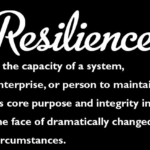Every day, we deal with both significant and minor obstacles. Whether you’re going a party where you don’t know anyone or giving a presentation at work, it’s normal to feel anxious and question your abilities to be in this situation. Following five quick psychological tips to help you feel calm and confident in any circumstance:
Although some people are born with confidence, it’s not necessarily a simple quality to develop. However, confidence is like a muscle; it becomes stronger the more you use it.

Psychological Tricks To Help You Be Calm in Any Situation
With a few psychological techniques, one may remain calm under any circumstance. By concentrating on slow, diaphragmatic breaths, deep breathing helps increase parasympathetic nervous system activation and reduce stress. Muscle groups are progressively tense and released during progressive muscle relaxation, which reduces physical tension.
SEE ALSO: How Fitness Can Help You Feel Better Mentally
Anxiety can be psychologically transported away with visualization techniques, which involve imagining a serene environment. Stress cycles can be broken and self-awareness can be improved by practicing mindfulness meditation, which focuses on the present. Repeating soothing phrases as part of a positive affirmation helps to maintain an optimistic outlook. By questioning and substituting logical concepts for unfavorable ones, cognitive reframing is helpful.
Focusing on bodily experiences, grounding practices can divert attention from worry. A routine gives one a sense of stability and control. Frequent exercise produces endorphins, which improve mood and lessen stress. Last but not least, getting social support through speaking with loved ones, friends, or a therapist can provide comfort and fresh insights, encouraging composure in trying circumstances.
Before speaking, pause
When answering a question, be calm, give yourself a moment to collect your thoughts.
Silence for two to three seconds gives you a chance to gather yourself and gives off an air of confidence. You convey to the other person that what you have to say is important and merits careful consideration by holding off on speaking.
SEE ALSO: The Million-Dollar One-Person Business: Book Summary
While it may seem strange to wait to respond, pausing during high-stress circumstances, such as meetings or presentations, can help you stay grounded and in control.
Before you talk, practice inhaling and exhaling. When delivering your speech, project confidence and strength through a composed yet assured tone of voice.
Make confident physical gestures.
When you talk, you give off an insecure aura that makes people less inclined to take you seriously. Examples of this include crossing your arms, hunching your shoulders, and looking at the ground.
Instead, demonstrate your success to everyone by using your body language. Lower your shoulders and stand erect. When you meet someone new, make sure to smile, shake hands firmly, and make eye contact.
Even while you may not be totally at ease changing your body language in this way, in time you’ll learn to hold yourself confidently without even trying. The adage “fake it ’til you make it” is true, particularly when it pertains to self-belief.
It’s okay for you to occupy space, so feel free to do so!
SEE ALSO: 17 Common Behaviors of Highly Intelligent Individuals
Continue to be intrigued.
Arrogance and confidence are two different things. By continuing to be engaged with others around you and making contributions to your community, you can ensure that you are on the correct side of that split.
Maintaining a low profile and being genuinely interested in the people you are with are the keys to being the most fascinating person in the room and the one that draws attention from everyone else.
Spend more time listening than speaking since you will discover more about someone by actually hearing what they have to say.
To keep the conversation going, pose intelligent, perceptive questions. Explore more in-depth, challenging subjects without fear. Presentness is the key to connection.
Acquire new knowledge every day.
An open mind and a willingness to learn are prerequisites for confidence. Make time every day to learn something new that isn’t already in your knowledge base to keep yourself sharp.
Even for a short while—a half hour—make time to read. See an interview with an individual you find inspiring or check out a fresh podcast.
Another important quality is empathy for other people. You’ll discover fresh viewpoints and approaches to life if you believe that others may teach you anything.
SEE ALSO: How Your Beliefs Influence Your Destiny: A Positive Mindset Vs. A Fixed Mindset
Be grateful for what you have.
Put your accomplishments and positive traits on paper to serve as a reminder to yourself of how deserving you are. Look at your list and remind yourself how amazing you are when you’re feeling low on self-worth.
Write down the accomplishments you’re proud of and the difficulties you overcame.
Creating a space for appreciation is a simple way to improve your mood and recognize your own value in this world.
Remember your progress always, especially as you head toward your unfathomably bright future.
Writer Alexandra Blogier is part of the journalism and entertainment team at YourTango. She writes about pop culture, social issues, and anything related to the entertainment business.






